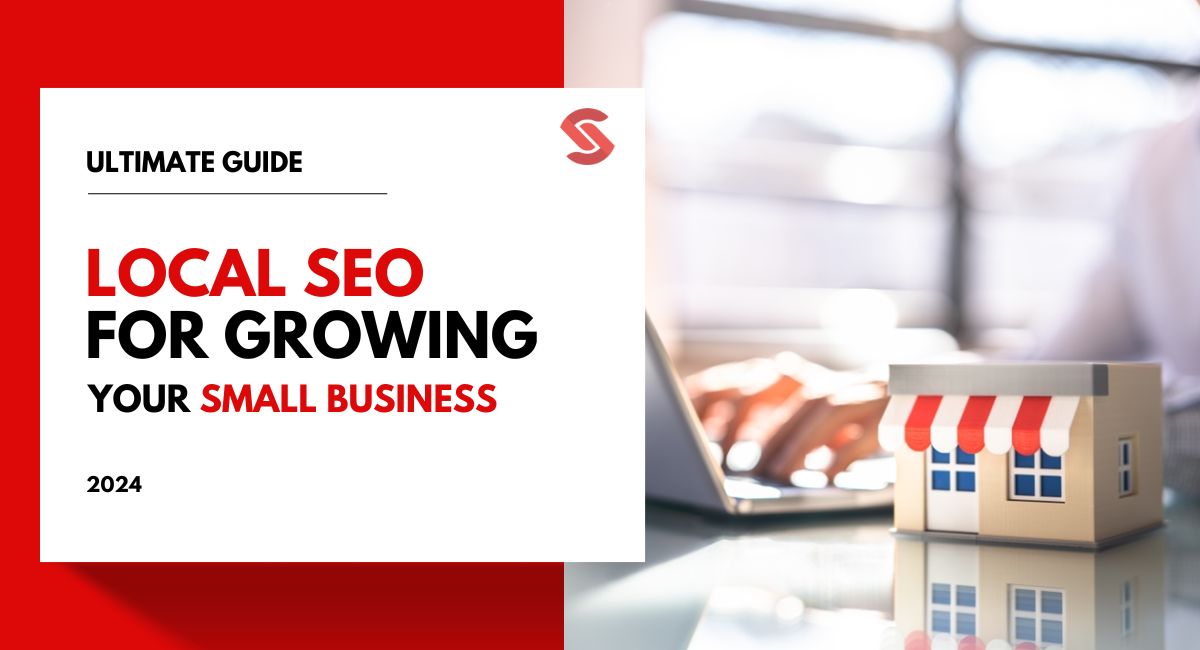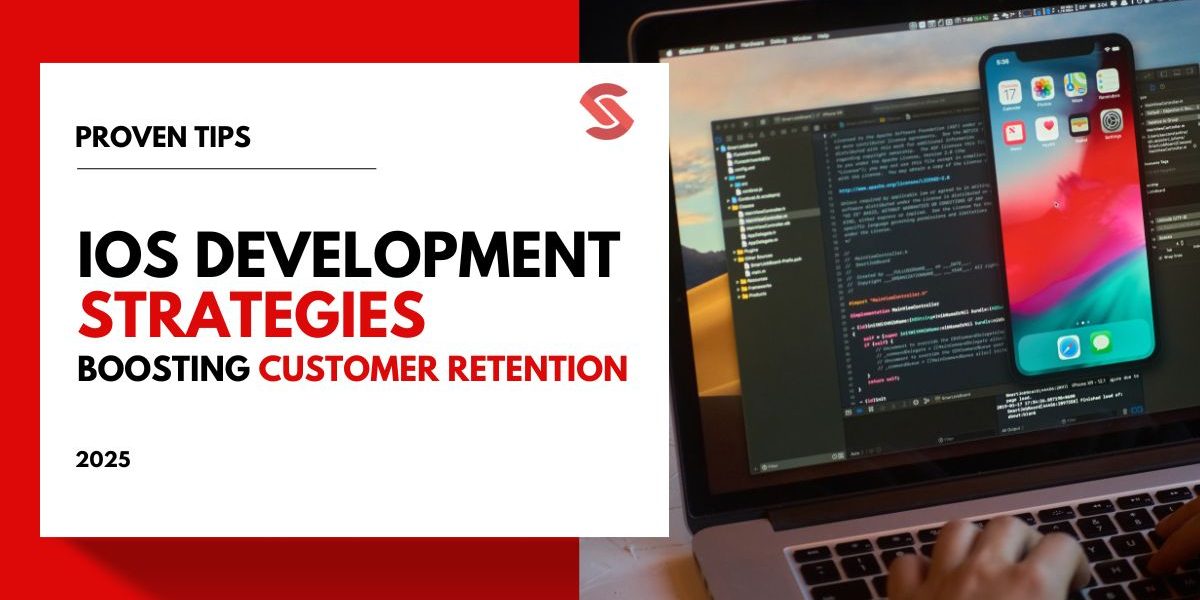As a small business owner, you must understand the importance of having a strong online presence. But did you know that focusing on local SEO can significantly boost your online visibility? Local SEO refers to the practice of optimizing your website and online presence to attract customers in your local area. Local SEO is not just a buzzword; it’s a powerful tool that can propel your business to new heights.
With 46% of all Google searches being local, ignoring local SEO is like turning a blind eye to nearly half of your potential customers. As a business owner, it’s important to understand that local SEO can differentiate between a customer discovering your business or your competitors. This guide will provide you with essential knowledge and actionable insights to help you use local SEO effectively.
What is Local SEO?
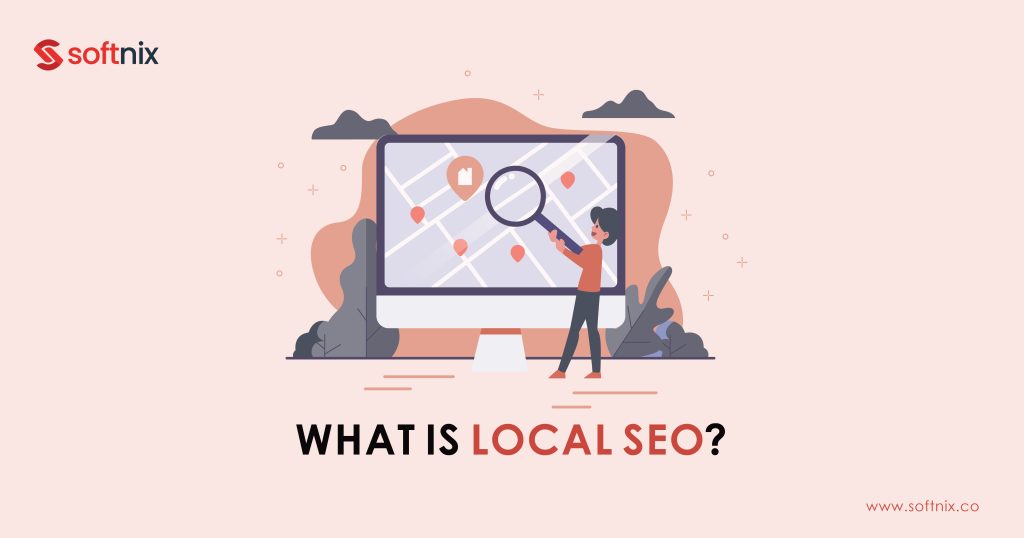
Local SEO is about improving your business’s visibility in local search results. Optimizing your website and online profiles helps you attract customers from your area. This includes adding your business to local directories, gathering reviews, and ensuring your address and phone number are consistent across the web. Local SEO makes it easier for nearby customers to find and choose your business.
Difference Between Local SEO and Traditional SEO
Local SEO focuses on optimizing a business’s online presence for local search results, targeting customers in a specific area through local directory listings, Google My Business, and localized content, all of which are essential SEO services. Traditional SEO, however, aims to improve a website’s visibility nationally or globally, using strategies like keyword research, backlink building, and broad content optimization. While Local SEO enhances local search visibility, Traditional SEO seeks broader search rankings and online presence.
How Local SEO Works
Local SEO works by optimizing your website and online presence for local searches. This includes keyword optimization to target specific local terms. Adding your business to local directories and Google My Business helps improve visibility. Managing reviews boosts your reputation and attracts more local customers.
Local citations ensure your business information is consistent across the web. Google My Business listing is crucial for local SEO. It provides vital information like address, phone number, and hours of operation. Review management is also key. Positive reviews enhance your business’s credibility and increase customer engagement.
How Important Is Local SEO for Small Businesses?

Optimizing locally is key for small businesses to get noticed by targeted audiences; employing effective SEO services helps gather authentic reviews, building brand trust and visibility. It helps gather authentic reviews, building brand trust and visibility. By appearing in local search results, your business gains more local customers. Local SEO not only improves your online presence but makes it easier for people nearby to find you.
Impact on Local Visibility
Optimizing for local keywords and managing local citations are essential for small businesses to appear in local search results, significantly boosting their visibility. According to SEO expert Neil Patel, local SEO is a powerful tool for increasing visibility among local customers. This enhanced visibility drives more local traffic, increasing potential sales. By appearing prominently in local searches, small businesses can attract more nearby customers, which is crucial for their growth and success.
Building Online Reputation
Positive reviews on platforms like Google build trust and credibility for small businesses, encouraging more customers to choose their services. Consistent citations across local directories ensure accurate business information, which is vital for maintaining a professional image. Engaging with local customers through social media and review responses strengthens the local reputation, creating a positive image for the business. This ongoing interaction with the community fosters loyalty and a trustworthy online presence.
Local SEO Case Studies
Local SEO can drive significant growth for small businesses. Here are some real-life examples:
Case Study 1: A Small Café in Chicago
- Challenge: Low visibility in a competitive market
- Strategy: Optimized Google My Business, posted regular updates, and engaged with customer reviews.
- Result: 300% increase in local search visibility, 40% revenue increase (Big Fin SEO).
Case Study 2: Plumbing & HVAC Service Company
- Challenge: High advertising costs, low organic traffic
- Strategy: Rebuilt website, optimized Google My Business, improved citations and backlinks.
- Result: 40% increase in organic and maps calls, 29% reduction in cost per lead, and 23% increase in total calls (Culture Cube Marketing).
These case studies demonstrate the effectiveness of Local SEO in enhancing visibility and driving business growth.
Where Can Your Small Business Rank with Local SEO?
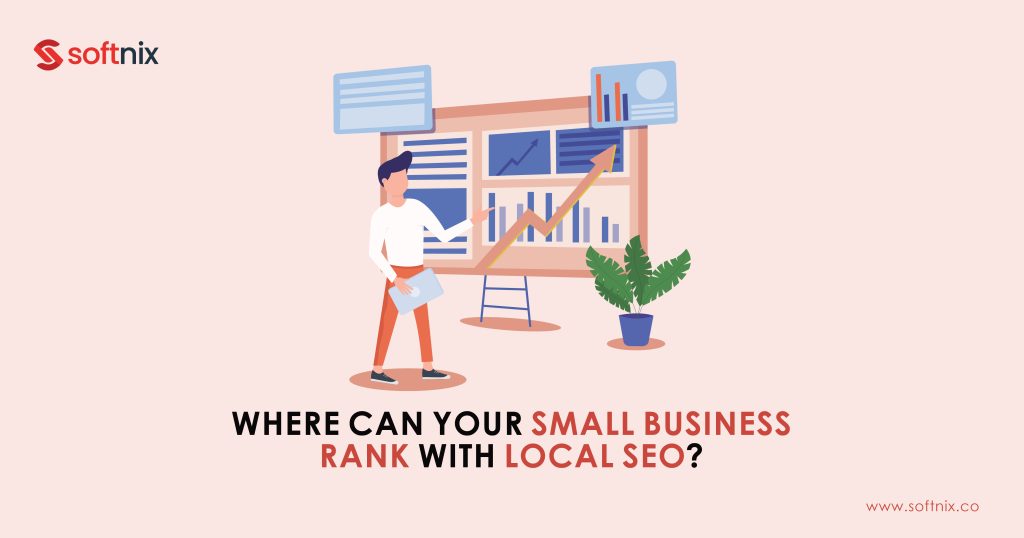
With effective local SEO, your small business appears higher in local search results, making it easier for nearby customers to find you. Consulting an SEO services guide for businesses can provide step-by-step instructions to enhance your local SEO strategies. By optimizing your online presence with accurate business information, positive reviews, and local keywords, you improve your search rankings and attract more local traffic, boosting your overall visibility and sales.
1. Local Organic SERP
Ranking in local organic SERP can significantly boost a small business’s visibility. Factors like keyword optimization, quality content, and local backlinks contribute to higher rankings. A study by BrightLocal found that 28% of people click on the first organic result in local searches. Achieving high rankings increases search visibility and drives more organic traffic to your business, ultimately leading to more customer engagement and sales.
Here is a screenshot of Google search results for plumbing services in Houston, TX, showing various companies offering plumbing, heating, and air conditioning repair and installation services:
2. Local Map Pack
Appearing in the Local Map Pack offers small businesses a prime spot in local search results. The Local Map Pack displays the top three local businesses related to a search query, showing their locations, hours, and reviews. This visibility boosts customer reach by making your business easy to find.
Look at the screenshot of Google search results displaying local businesses offering plumbing services in Houston, TX, complete with ratings, contact information, and a map for easy navigation:
Optimizing your Google My Business profile, gathering positive reviews, and ensuring accurate business information are key strategies to achieve this. Being in the Map Pack enhances visibility and makes it easy for customers to find and contact your business, driving more foot traffic and potential sales.
What are the Benefits of Local SEO for Small Businesses?

Local SEO helps small businesses attract more local customers by improving their visibility in local search results. This boosts local traffic and customer engagement. Optimized listings and positive reviews build trust and credibility. By focusing on local search, small businesses can compete effectively with larger companies and drive more sales.
1. Increased Local Online Visibility
Local SEO boosts online visibility for small businesses by optimizing their presence in local search results. By focusing on local search terms and maintaining consistent business information, small businesses improve their chances of appearing in local searches, driving more traffic and growth. Key practices for improving local online visibility include:
- Keyword Optimization: Use relevant local keywords in your content.
- Google My Business: Keep your profile updated with accurate information.
- Local Citations: Ensure your business information is consistent across directories.
- Customer Reviews: Encourage positive reviews on Google and other platforms.
- Local Backlinks: Acquire links from reputable local websites.
2. Higher Local Search Rankings
Achieving higher local search rankings involves several strategies. Keyword optimization ensures your site targets relevant local terms. Building local backlinks from reputable sources boosts your site’s authority. Google My Business optimization is crucial, as it directly affects local search rankings. According to Rio SEO, businesses that optimize their Google Business Profile see significant improvements in local search visibility. These methods lead to higher rankings and greater search success.
3. Enhanced User Experience
Improving user experience through Local SEO involves enhancing website usability and customer satisfaction. Fast-loading pages, mobile-friendly design, and easy navigation make it easier for customers to find what they need. Positive reviews and accurate business information also contribute to a better user experience. These practices not only attract more visitors but also ensure they have a positive interaction with your business, increasing customer satisfaction and loyalty.
4. Boost in Local Traffic and Leads
Increasing local traffic and leads through Local SEO brings numerous benefits to small businesses. These advantages help attract more customers and drive growth, making Local SEO an essential strategy. Benefits include:
- Increased Foot Traffic: More local searches lead to higher in-store visits.
- Higher Conversion Rates: Local leads are more likely to convert into paying customers.
- Community Presence: Strong local visibility enhances brand awareness within the community.
- Improved Customer Relationships: Frequent local interactions build stronger customer loyalty.
These benefits collectively contribute to business growth and a stronger local market presence.
5. Improved Trust and Credibility
Building trust and credibility through Local SEO involves positive reviews, consistent citations, and local engagement. Positive reviews from satisfied customers enhance trust. Moz founder Rand Fishkin says, “Local SEO isn’t just about rankings, it’s about building trust in your community.” Consistent business information across directories further establishes credibility. Engaging with local customers on social media and responding to reviews also builds a strong, trustworthy reputation for your business.
6. Cost-Effectiveness
Local SEO is cost-effective compared to other marketing strategies, offering significant economic benefits for small businesses. It focuses on organic search results, reducing the need for expensive ads. By optimizing for local search, businesses can reach their target audience more efficiently. Local SEO requires a lower investment, providing long-term benefits and cost savings. The efficiency of Local SEO makes it an ideal choice for small businesses looking to maximize their marketing budget while achieving substantial growth and visibility.
7. Competitive Advantage
Local SEO provides a competitive edge by helping small businesses outperform local competitors. By optimizing for local search terms and maintaining an active online presence, businesses can attract more local customers. This visibility ensures that your business appears ahead of competitors in search results. Regularly updating Google My Business and acquiring local backlinks further strengthen your position.
What are the Local SEO Ranking Factors?
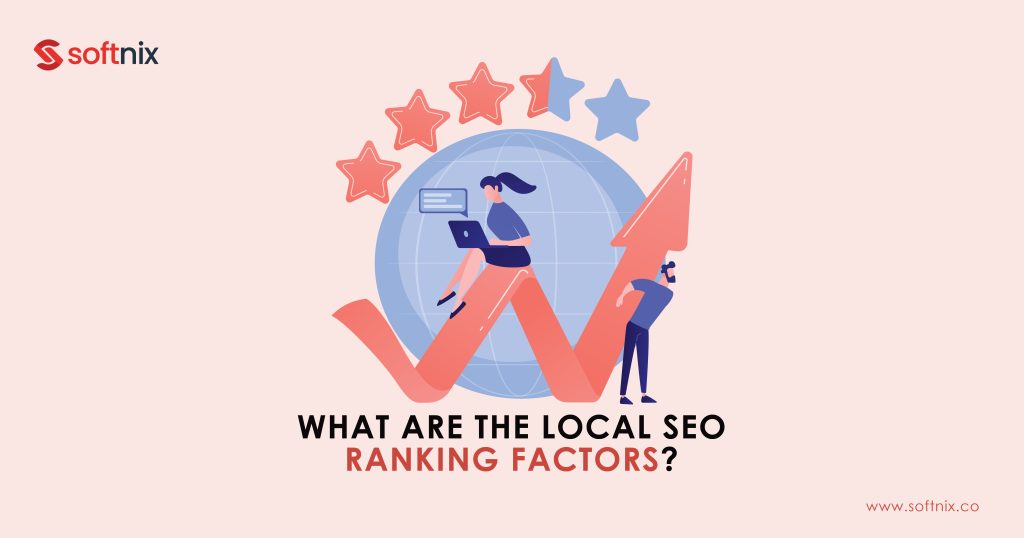
Boosting local traffic and leads through Local SEO offers numerous benefits for small businesses. Now, let’s look at the key factors that drive these impressive results. The most important Local SEO ranking factors include optimizing your Google My Business profile, using relevant local keywords, earning local backlinks, and managing online reviews. These factors collectively enhance your visibility and build trust, helping your business stand out in local search results.
1. Google My Business (GMB) Optimization
Optimizing GMB or Google My Business helps your business show up in local searches and on Google Maps. To make it work well, fill out all your business info correctly. Add good photos of your business and products. Choose the right categories for what you do. Keep your GMB listing fresh by posting updates and offers. Respond to questions and reviews quickly. This shows you care about customers. Check your GMB insights to see how people find and use your listing. Use this info to make your profile even better.
Here is a screenshot of the Google My Business interface highlighting the steps to complete all sections for each tab to optimize your business profile visibility on Google:
2. Local Citations and NAP Consistency
Local citations are mentions of your business name, address, and phone number on other websites. Having many good citations helps search engines trust your business. It’s important to keep this info the same everywhere online. This is called NAP consistency. Make a list of where your business is mentioned online. Check each place to make sure the info is correct and the same. If you find mistakes, fix them right away. When you add new citations, always use the same info. This helps your local SEO a lot.
Like in this screenshot of SERP for the ‘New York business directory,’ various online resources and directories for finding businesses specifically in New York are highlighted:
3. Reviews and Ratings
Reviews are like online word-of-mouth for your business. They help new customers decide if they want to choose you. Good reviews can make your business show up higher in local search results. They also make people more likely to pick you over others. Ask happy customers to leave reviews. Make it easy by giving them a link to your Google reviews page. Always respond to reviews, good or bad. This shows you care about customer feedback. Don’t buy fake reviews or offer rewards for good ones. Focus on great service instead.
Here is a snippet of customer reviews for AAA Air Conditioning in McKinney, TX, highlighting their 5-star rating and positive feedback for prompt and efficient service:
4. Localized Content
Localized content is stuff you make just for people in your area. Rand Fishkin, a well-known SEO expert, says, “Creating content that speaks to your local audience is key to winning in local search. Write about local events or news that relate to your business. Share stories about how you’ve helped local customers. Use local keywords naturally in your content. This helps it show up in local searches and connect with people near you.
In this snippet, the local plumbing company showcases that they serve in the Montrose area in Houston, Texas, with a map and description of the neighborhood’s history and demographics:
5. On-Page SEO Elements
On-page SEO elements help search engines understand what your web pages are about. For local SEO, these should include info about your location and services. Here are some best practices:
- Use your main keyword and location in the title tags
- Write clear meta descriptions with local info
- Include local keywords in your headers (H1, H2, H3)
- Create useful content with local terms
- Add alt text to images using local keywords
- Make your URLs short and include location if possible
- Link to other relevant pages on your site
Remember to use these elements naturally. Don’t stuff keywords or it might hurt your SEO. Focus on making your content helpful and easy to read for both search engines and real people.
6. Local Link Building
Backlinks are inbound links from other websites to yours. They signal to search engines that your site is valuable and trustworthy. While backlinks were once a major factor in local search rankings, their influence has decreased. Today, factors like Google Business Profile optimization, reviews, and on-page SEO often carry more weight. To enhance your local SEO, focus on building relationships with other local businesses. Consider co-marketing efforts, sponsoring local events, or joining your local chamber of commerce. Guest posting on local websites can also help.
For example, this screenshot shows search results for top pet-sitting bloggers in San Diego:
Local SEO Strategies: 8 Essential Tips for Small Businesses
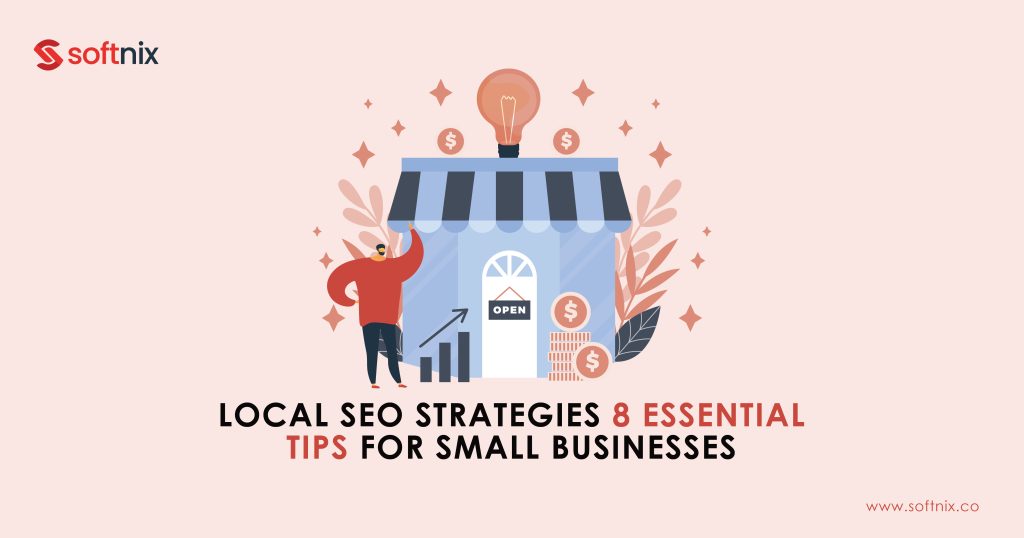
1. Claim and Optimize Your Google My Business Listing
Google My Business helps your business show up in local searches and on Google Maps. It’s free and easy to set up. To get started, you need to claim and optimize your listing. Here are the steps to do it:
- Go to Google My Business and sign in
- Search for your business or add it if it’s not there
- Verify your business (usually by mail)
- Fill out all your business info completely
- Add photos of your business, products, and team
- Choose the right categories for your business
- Post updates, offers, and events regularly
For example, this image compares an unoptimized business listing with an optimized one, highlighting the importance of photos, reviews, and complete information for attracting customers:
Here is an image that illustrates the easiest way of the process for claiming your business listing on Google by clicking ‘Own this business? :
Remember to keep your listing up to date. Check it often and respond to reviews and questions quickly. This helps your business look active and trustworthy to both Google and potential customers.
2. Ensure NAP Consistency Across All Platforms
NAP stands for Name, Address, and Phone number. It’s super important to have this info the same everywhere online. This includes your website, social media, and business directories. When your NAP is the same everywhere, it helps search engines trust your business info. To keep your NAP consistent, make a list of all the places your business is listed online. Check each one to make sure the info matches. If you find any differences, fix them right away. Even small things like using “St.” instead of “Street” can cause problems, so be careful.
This image demonstrates the importance of consistent and accurate business information across platforms, showcasing a florist’s contact details and location on both platforms:
3. Generate and Manage Online Reviews
Online reviews are like word-of-mouth on the internet. They help new customers decide if they want to choose your business. Good reviews can make your business show up higher in local search results. They also make people more likely to pick you over other options. To get more reviews, just ask your happy customers to leave them. You can do this in person, by email, or with signs in your store. Make it easy by giving them a link to your Google reviews page. Always respond to reviews, whether they’re good or bad. This shows you care about customer feedback.
Here is an image that shows a business dashboard for monitoring Google reviews, including tools for tracking ratings, review counts, and customer response rates:
4. Create Localized Content
When you make content for your local area, it helps your business connect with nearby customers. Brian Dean, a respected SEO expert, says, “Local content is like a magnet for your community. It pulls in customers and search engines alike, giving your business a real edge in local searches.” Write about local events or news that relate to your business. Share stories about how you’ve helped local customers. Use local keywords naturally in your content. This helps it show up in local searches and connect with people near you.
5. Build Local Citations
Local citations are mentions of your business name, address, and phone number on other websites. They help search engines trust your business info. A study by Moz found that citation signals make up about 10% of local pack ranking factors. To build citations, start with popular directories like Yelp and Yellow Pages. Then, look for local directories in your area. Make sure your info is the same on all sites. This consistency helps your local SEO. Remember to check and update your citations regularly.
6. Implement On-Page SEO Best Practices
On-page SEO means making your website pages work well for search engines. For local SEO, this includes using your location in important places. Put your city or area in your page titles, headings, and content. But don’t overdo it – keep it natural for readers. Use descriptive URLs that include your main keywords. Write good meta descriptions that make people want to click. Include your location in the image alt text when it makes sense.
7. Optimize for Mobile Search
More people use phones to search for local businesses. Your website needs to work well on small screens. Make sure the text is easy to read and the buttons are easy to tap. Use a responsive design that fits all screen sizes. Test your site on different phones to check how it looks. Google has a free tool called Mobile-Friendly Test to help you. A mobile-friendly site can rank better in local searches and keep visitors happy. This can lead to more customers for your business.
8. Leverage Social Media for Local Engagement
Social media helps you connect with local customers. It can boost your local SEO too. When people interact with your posts, it shows search engines that people like your business. Here are some ways to use social media for local engagement:
- Share local news and events related to your business
- Post photos of your products or happy local customers
- Use local hashtags to reach people in your area
- Run contests or offers just for local followers
- Respond quickly to comments and messages
- Partner with other local businesses for cross-promotion
Remember to keep your social media profiles up to date with your correct business info. This helps with NAP consistency, which is important for local SEO. Regular, engaging posts can help build a loyal local following for your business.
How Much Does Local SEO Cost?
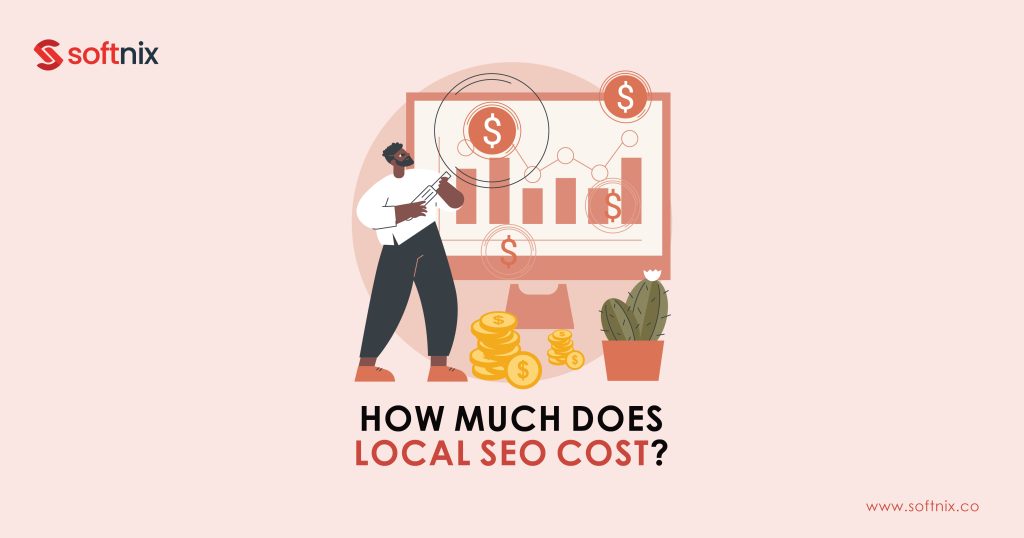
The cost of Local SEO can vary based on the strategies you choose and how much help you need. Some businesses do parts of it themselves, while others hire experts. Prices can range from a few hundred to several thousand dollars per month. The cost often depends on your business size, location, and competition. Remember, investing in Local SEO is about growing your business over time.
Monthly Retainer
Local SEO services typically come in different pricing tiers, each offering various levels of support. Basic services usually range from $300 to $500 per month, providing essential SEO tasks. Mid-range services, costing between $500 and $2,000 per month, offer more comprehensive optimization. The costlier the package, the more extensive the services provided, ensuring better visibility and growth.
1. Basic Services: $300 – $500 per month
Basic Local SEO services include initial audits, basic keyword research, and Google My Business setup. These foundational tasks help improve your online presence without breaking the bank. Essential services like these are ideal for small businesses looking to start their local SEO journey, offering affordability and essential optimization.
2. Mid-Range Services: $500 – $2,000 per month
Mid-range Local SEO services provide enhanced support, including content creation, citation building, and on-page SEO optimization. These services ensure more comprehensive optimization, helping businesses improve their search rankings significantly. With a higher budget, businesses can benefit from more thorough SEO strategies, driving better results and increased local visibility.
3. Comprehensive Services: $2,000 – $5,000+ per month
Comprehensive Local SEO services offer extensive optimization, including advanced keyword strategy, backlink building, and regular performance reports. These services provide premium support, ensuring thorough optimization and higher search rankings. With this tier, businesses receive full-service SEO, enhancing their online presence and driving significant growth through detailed strategies and regular monitoring.
One-Time Project Fees
One-time project fees cover specific Local SEO tasks like local SEO audits, Google My Business setup, and citation building. These services provide targeted improvements without long-term commitments. Costs vary depending on the project’s scope, offering flexible budgeting for businesses needing specific optimizations to enhance their local search performance.
1. Local SEO Audit: $300 – $1,500
A comprehensive Local SEO audit includes website analysis, keyword research, and performance assessment. This audit identifies strengths and weaknesses, providing insights for optimization. By analyzing various SEO aspects, businesses can improve their online performance, ensuring better search visibility and increased local traffic through targeted recommendations and actionable insights.
2. Google My Business Setup and Optimization: $200 – $800
Setting up and optimizing a Google My Business profile involves accurate profile setup, regular updates, and engagement with customers. This process enhances visibility and local engagement. Accurate and optimized listings attract more local customers, improving search rankings and driving business growth by ensuring that the business information is up-to-date and engaging.
3. Citation Building: $50 – $150 per citation
Building local citations involves listing your business on various directories to improve visibility and credibility. Ensuring the accuracy and consistency of your Name, Address, and Phone Number (NAP) across all platforms is crucial. This strategy enhances local SEO by making your business easier to find and trust.
Hourly Rates
Local SEO services are offered by freelancers and agencies, with costs varying based on expertise and service quality. Freelancers typically charge $50 to $150 per hour, providing affordability and flexibility. Agencies charge $75 to $250 per hour, offering comprehensive support and resources. Comparing these options helps businesses choose the right service provider.
1. Freelancers: $50 – $150 per hour
Freelancers charge between $50 and $150 per hour for local SEO services. Factors influencing their rates include experience, scope of work, and client needs. Hiring freelancers offers advantages like affordability, flexibility, and personalized service, making them a suitable option for small businesses with specific SEO requirements.
2. Agencies: $75 – $250 per hour
Agencies providing local SEO services charge between $75 and $250 per hour. Their rates reflect the extensive range of services offered, including advanced strategies and comprehensive support. Working with agencies ensures reliability and access to a broader range of resources, benefiting businesses seeking thorough and consistent SEO efforts.
Local SEO Services Comparison
Here is a table that summarizes various Local SEO service options, detailing the pricing, services offered, and suitability for businesses across different needs and budgets.
| Service Type | Pricing | Services Offered | Best For |
|---|---|---|---|
| Monthly Retainer | |||
| Basic Services | $300 – $500 per month | Initial audits, basic keyword research, Google My Business setup | Businesses seeking affordability and initial optimization |
| Mid Range Services | $500 – $2,000 per month | Content creation, citation building, on-page SEO optimization | Businesses requiring enhanced optimization and comprehensive support |
| Comprehensive Services | $2,000 – $5,000+ per month | Advanced keyword strategy, backlink building, regular performance reports | Businesses needing premium support and extensive optimization |
| One-Time Project Fees | |||
| Local SEO Audit | $300 – $1,500 | Website analysis, keyword research, performance assessment | Businesses looking for improved performance, insight, and optimization |
| Google My Business Setup | $200 – $800 | Setting up and optimizing Google My Business profile, maintaining accuracy and engagement | Businesses aiming for visibility, accuracy, and local engagement |
| Citation Building | $50 – $150 per citation | Building local citations, ensuring accuracy and consistency across platforms | Businesses wanting increased visibility and credibility in local SEO |
| Hourly Rates | |||
| Freelancers | $50 – $150 per hour | Varied local SEO services based on freelancer expertise | Businesses seeking affordability, flexibility, and specialized expertise |
| Agencies | $75 – $250 per hour | Comprehensive local SEO services with extensive resources and reliability | Businesses looking for comprehensive support, reliability, and access to more resources |
Factors Influencing Cost
Various factors affect the cost of Local SEO services, making it essential to understand what influences pricing. These factors include:
- Location: High-demand areas often have higher costs.
- Industry Competition: More competition usually means higher prices.
- Service Scope: Comprehensive services cost more than basic packages.
- Provider Experience: Experienced providers charge higher rates.
Understanding these factors helps businesses manage costs effectively and choose the right SEO strategy for their budget.
Ongoing Maintenance, Custom Packages
Regular updates and tailored SEO packages are crucial for long-term success in Local SEO. Consistent maintenance ensures your strategies remain effective and up-to-date. Custom packages offer flexibility to address specific needs, making your SEO efforts more targeted and efficient. By focusing on continuous improvement and personalized services, businesses can achieve sustained growth and maintain their competitive edge.
How Long Does It Take to See Local SEO Results?
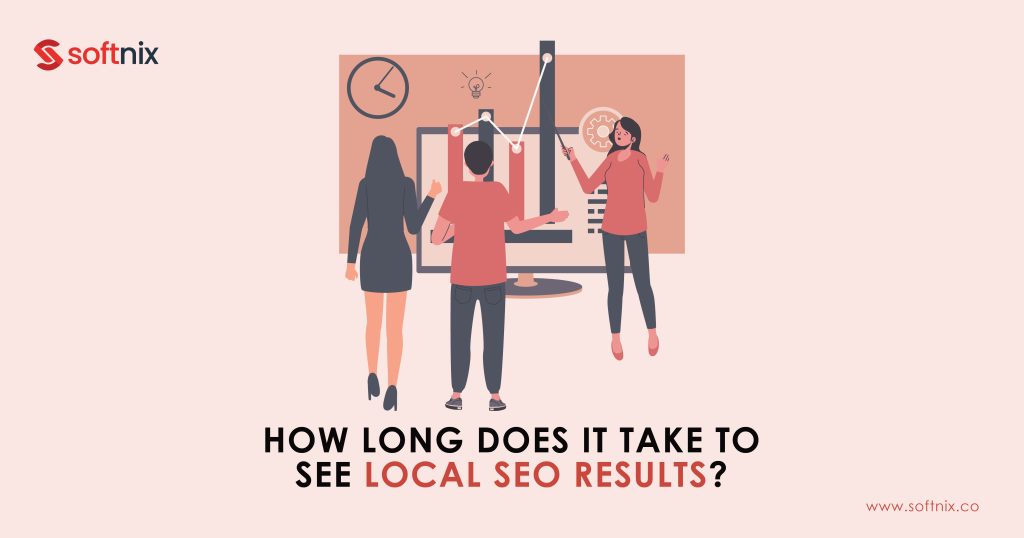
Understanding how long it takes to see Local SEO results is crucial. Typically, businesses can expect to see significant improvements in 3 to 6 months. This period allows for the implementation and optimization of strategies like keyword targeting, citation building, and content creation. Consistent maintenance and adjustments are key to sustaining these results over time.
Initial Setup and Optimization (1-2 Months)
During the first 1-2 months, focus on setting up and optimizing your Local SEO. Activities include keyword research, Google My Business setup, and ensuring NAP consistency. This phase lays the groundwork for future SEO efforts, establishing a strong foundation for improved search visibility and local presence.
Building Citations and Backlinks (2-4 Months)
Building citations and backlinks typically takes 2-4 months. This process involves listing your business on various directories and acquiring links from local websites. These efforts enhance your site’s authority and search ranking. Consistent and accurate citations boost your local SEO, driving more traffic and improving your online reputation.
Monitoring and Adjusting Strategies (4-6 Months)
From 4-6 months, focus on monitoring and adjusting your Local SEO strategies. Regularly check your search rankings, traffic, and user engagement. Make necessary adjustments to keywords, content, and backlinks. This ongoing process ensures your strategies remain effective and helps in optimizing performance for better results.
Significant Results (6-12 Months)
Significant Local SEO results usually appear within 6-12 months. During this period, expect substantial improvements in local search visibility and traffic. Consistent efforts in optimizing content, building backlinks, and engaging with local customers lead to noticeable growth in search rankings and business visibility.
Factors Influencing the Timeline
Several factors influence how quickly you see Local SEO results. Understanding these elements helps set realistic expectations and tailor your strategies effectively. The main factors include:
- Competition: Higher competition may slow progress.
- Website Quality: Well-optimized sites see faster results.
- Content Quality: High-quality, relevant content improves rankings.
- Backlinks: More high-quality backlinks speed up results.
- Consistent Efforts: Regular updates and optimizations are crucial.
By considering these factors, you can better manage your Local SEO efforts and anticipate the timeline for achieving your desired outcomes.
How to Choose the Right Local SEO Services Provider for Your Business?
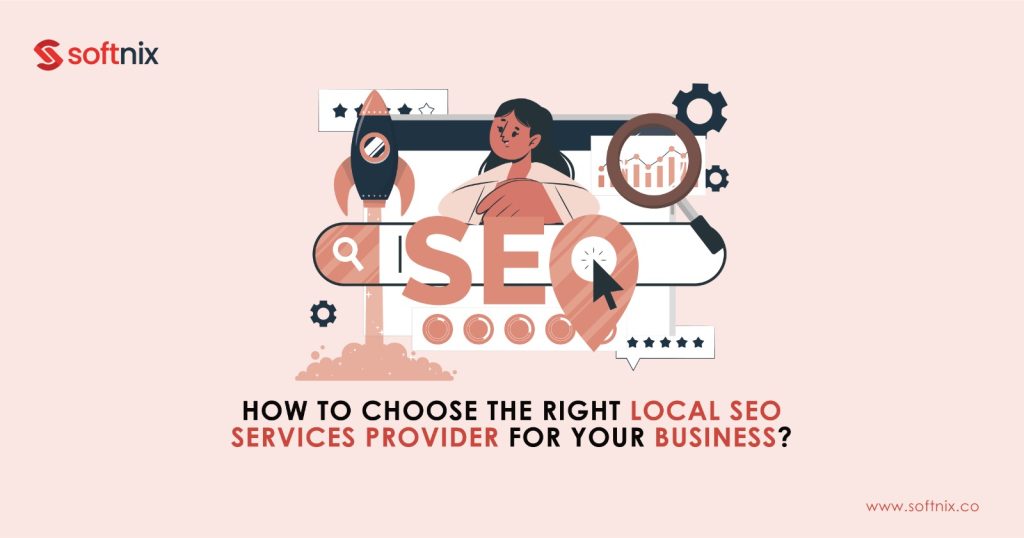
Choosing the right Local SEO services provider is important for your business’s success. Look for providers with proven experience, strong client testimonials, and a clear understanding of your industry. Ensure they offer tailored strategies and transparent reporting. Selecting the right partner ensures effective optimization, better local visibility, and sustained business growth.
1. Seek Industry Experts
Choosing an SEO provider with industry-specific expertise is crucial. Providers with knowledge of your industry understand its unique challenges and opportunities. This expertise ensures they can tailor strategies to your business needs, enhancing effectiveness and results. Industry knowledge also helps in staying ahead of competitors and adapting to market trends.
2. Research Their Track Record
Evaluating the past performance of Local SEO providers helps in making an informed decision. Look for case studies, client testimonials, and success stories. Assess their track record by checking their previous results and the longevity of their client relationships. This research boosts confidence in their ability to deliver desired outcomes.
3. Talk to the Local SEO Company Before Hiring Them
Direct communication with potential SEO providers is essential. Interviewing them helps clarify their approach, methodologies, and how well they understand your business needs. This conversation ensures alignment of goals and expectations, making it easier to gauge their expertise and fit for your business. Open dialogue fosters trust and informed decision-making.
4. Find Out If They Track Data
Data tracking is vital for effective Local SEO. Ensure the provider tracks key metrics like traffic, rankings, and conversions. Data analysis offers insights into campaign performance and areas needing improvement. Tracking data helps in making informed adjustments, ensuring strategies remain effective and aligned with your business goals.
5. Discuss If They Offer Reports and How They Use Them
Regular reports from your Local SEO provider are crucial for transparency and strategy optimization. Ask about the frequency and detail of their reports. Understanding how they use these reports to refine strategies ensures continuous improvement. Detailed reporting helps in tracking progress, identifying issues, and adjusting tactics for better results.
6. Talk About Your Goals and How They Will Achieve Them
Communicating your business goals to the SEO provider is essential. Discuss how their strategies will align with and achieve these goals. This alignment ensures that the SEO efforts are targeted and effective. Understanding their approach to achieving your objectives fosters collaboration and increases the chances of success.
Why Softnix is Best for Your Local Business SEO?
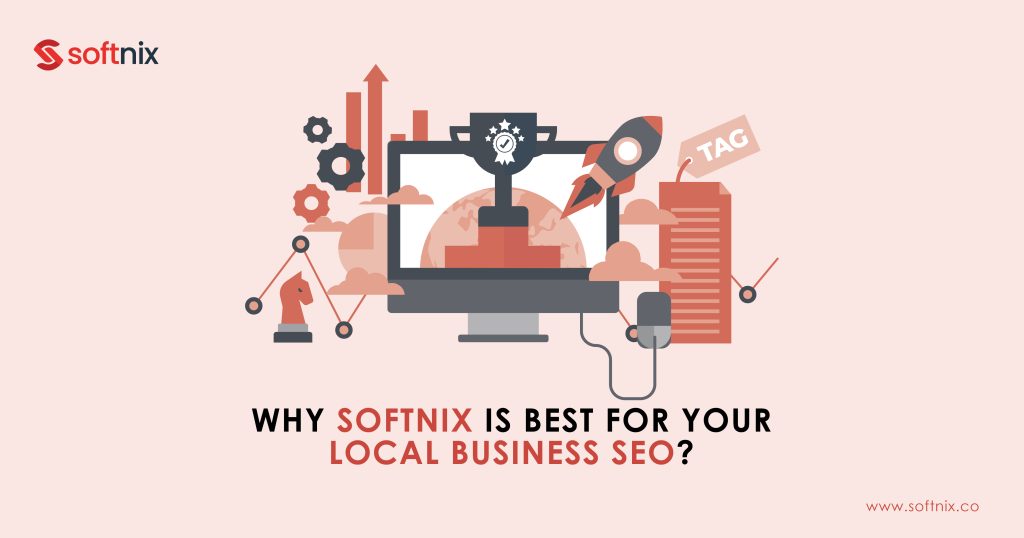
Softnix stands out as the top choice for Local SEO with its proven track record of boosting local visibility. Our unique approach includes customized SEO strategies, targeted local optimization, and ongoing support. Clients consistently praise us for transforming their online presence and increasing their local search rankings—Trust Softnix to deliver results and drive your business success.
FAQs Related to Local SEO
1. What is Local SEO?
Local SEO involves optimizing your online presence to attract more business from relevant local searches. It focuses on improving visibility in local search results, managing online reviews, and ensuring consistent NAP (Name, Address, Phone Number) information across directories. This helps businesses connect with customers in their immediate area, boosting foot traffic and local sales.
2. How long does it take to see results from Local SEO?
Local SEO results typically take about 3 to 6 months to become noticeable. Initial setup and optimization happen in the first 1-2 months, followed by citation building and backlinking over the next 2-4 months. Continuous monitoring and adjustments ensure sustained improvement, with significant results often visible within 6-12 months.
3. What are the key factors influencing Local SEO?
Key factors influencing Local SEO include Google My Business optimization, local citations, reviews and ratings, localized content, and on-page SEO elements. Consistent NAP information, quality backlinks, and regular engagement with local audiences also play crucial roles in improving local search rankings and visibility.
4. Why is Google My Business important for Local SEO?
Google My Business (GMB) is vital for Local SEO because it enhances your business’s visibility in local search results. A well-optimized GMB profile includes accurate business information, photos, and customer reviews, which helps attract more local customers. It also improves your chances of appearing in the Local Map Pack, driving more traffic to your business.
5. How do local citations impact Local SEO?
Local citations, which are mentions of your business’s NAP information on various websites, help improve local search visibility. Consistent and accurate citations across directories like Yelp, Yellow Pages, and local blogs enhance your business’s credibility and trustworthiness. This, in turn, boosts your local search rankings and helps more local customers find you.
6. What role do reviews and ratings play in Local SEO?
Reviews and ratings are crucial for Local SEO as they influence customer trust and search engine rankings. Positive reviews on platforms like Google and Yelp signal to search engines that your business is trustworthy and popular. Responding to reviews also enhances customer engagement and improves your online reputation, driving more local traffic to your business.
7. Why is localized content important for Local SEO?
Localized content helps your business connect with local audiences by addressing their specific interests and needs. It includes using local keywords, creating content about local events, and referencing local landmarks. This relevance boosts your search rankings in local queries and makes your business more attractive to nearby customers.
8. What are the essential on-page SEO elements for Local SEO?
Essential on-page SEO elements for Local SEO include optimized title tags, meta descriptions, headers, and internal linking. Using local keywords in these elements helps search engines understand your business’s relevance to local searches. Additionally, ensuring your website is mobile-friendly and loads quickly enhances user experience and search rankings.
9. How much do Local SEO services cost?
Local SEO service costs vary based on the provider and scope of services. Basic services range from $300 to $500 per month, mid-range services from $500 to $2,000 per month, and comprehensive packages from $2,000 to $5,000+ per month. Hourly rates for freelancers range from $50 to $150, while agencies charge $75 to $250.
10. What should I look for in a Local SEO services provider?
When choosing a Local SEO services provider, look for industry-specific expertise, a proven track record, and transparent communication. Ensure they offer data tracking, regular performance reports, and tailored strategies to meet your business goals. Client testimonials and case studies can also provide insights into their effectiveness and reliability.
11. How does Softnix help businesses with Local SEO?
Softnix helps businesses with Local SEO by offering customized strategies, targeted local optimization, and ongoing support. With a proven track record of boosting local visibility and client success, Softnix ensures effective optimization through detailed keyword research, citation building, and review management. Their approach helps businesses achieve sustained growth and improved search rankings.
12. What is the importance of ongoing maintenance in Local SEO?
Ongoing maintenance in Local SEO is crucial for sustaining and improving search rankings. Regular updates, performance monitoring, and strategy adjustments ensure that your SEO efforts remain effective. Continuous optimization helps address changes in search engine algorithms and market trends, keeping your business competitive in local searches.
13. How do backlinks influence Local SEO?
Backlinks from reputable local websites enhance your site’s authority and search ranking. Building quality local backlinks involves collaborating with local businesses, sponsoring events, and joining local directories. These efforts improve your site’s credibility and visibility in local searches, driving more targeted traffic to your business.
14. What are the benefits of mobile optimization for Local SEO?
Mobile optimization ensures your site is user-friendly and accessible on mobile devices, which is crucial for Local SEO. With most local searches conducted on mobile phones, a mobile-friendly site enhances user experience and search rankings. Google prioritizes mobile-optimized sites, making it essential for improving local search visibility.
15. How do social signals impact Local SEO?
Social signals, such as likes, shares, and comments on social media platforms, influence Local SEO by boosting engagement and visibility. Active social media profiles with regular interactions help improve local search rankings. Engaging with your local community on platforms like Facebook and Instagram builds your brand and attracts more local customers.

